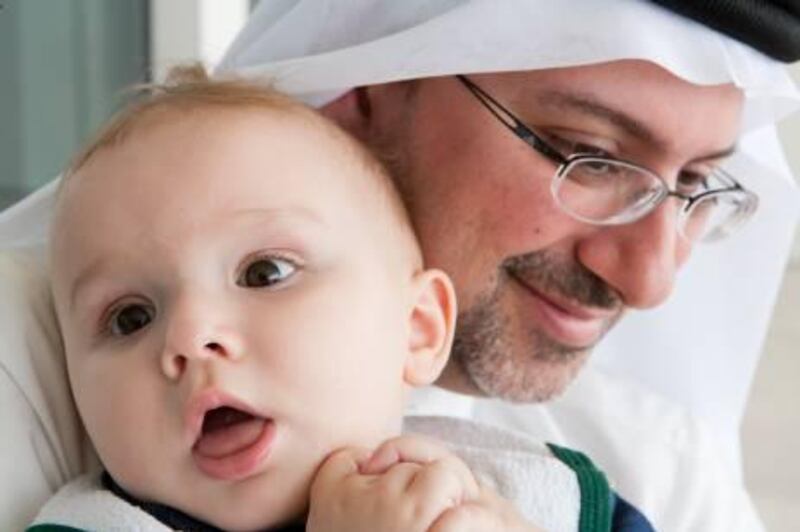DUBAI // Zakia Khalifa lost two newborn babies to an inherited disorder.
Her bubbly seven-year-old daughter, Shifa, has the same condition. The difference: Shifa was given early treatment; her siblings were not.
The mother and daughter were on the sidelines of a conference on genetic disorders yesterday in which doctors urged parents to get early screening and treatment.
"I have learnt a lot from the doctors that have helped and treated my daughter, Shifa. She is on a special medical formula, but she can also eat vegetables and fruits in measured amounts," said Mrs Khalifa, whose children inherited a disorder in which the body is unable to process proteins and fats properly. "She is in Grade 1 and can distinguish colours and knows numbers."
Babies who are not diagnosed and treated early for the disorder, known as propionic acidemia, can die within their first year, doctors said yesterday on the second day of the UAE's first International Genetic Metabolic Conference at the InterContinental Festival City Hotel in Dubai.
"The importance of picking up this group of disorders early is if you diagnose them, you can intervene and prevent a very devastating outcome that could affect their mental abilities or actually their own lives," said Dr Laila Abdel-Wareth, chair of laboratory medicine at Sheikh Khalifa Medical City in Abu Dhabi.
Raed al Awadhi says his one-year old son Daniel, who was born in the US, was diagnosed with a rare genetic disorder called Joubert syndrome in his first week of life.
The disorder affects the area of the brain that controls balance and coordination.
“We noticed that Daniel had very rapid breathing when he was born, but when that persisted through the next day... the hospital did a series of tests including a scan of his brain,” said Mr al Awadhi, a UAE national. “We were lucky that there was a specialist there to recognise the disorder.”
Mr al Awadhi says that although joubert syndrome does not have a cure, Daniel’s case is on the milder side and he is receiving physical therapy.
“I have seen three cases in my clinic, but some general practitioners may not think that the baby has a rare genetic disorder like Joubert since the symptoms vary,” said Dr Fatma Bastaki, a consultant paediatrician and clinical geneticist who is the head of paediatrics at Al Wasl Hospital in Dubai.





